AdvoCare Quitting MLM
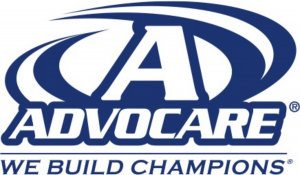 On Friday Advocare announced that it was dropping its multi-level marketing component as of July 17, 2019, and there are allegedly more than 100,000 Advocare distributors who will be impacted. Why are they doing this? Pressure from the Federal Trade Commission (FTC), it seems. The speculation is that the FTC took issue with how Advocare compensated its distributors.
On Friday Advocare announced that it was dropping its multi-level marketing component as of July 17, 2019, and there are allegedly more than 100,000 Advocare distributors who will be impacted. Why are they doing this? Pressure from the Federal Trade Commission (FTC), it seems. The speculation is that the FTC took issue with how Advocare compensated its distributors.
All MLMs are careful to say “we don’t pay for recruiting.” They have to say that. Because paying for recruiting makes a company an illegal pyramid scheme. Instead, the companies pay commissions when distributors order products. It doesn’t matter if the products are sold to third party consumers or not. (Many of us would argue that the companies are de facto paying for recruiting when someone recruits a distributor and encourages them to buy an inventory package, without regard to whether they can actually sell those products.)
Here’s the old way of doing business at AdvoCare: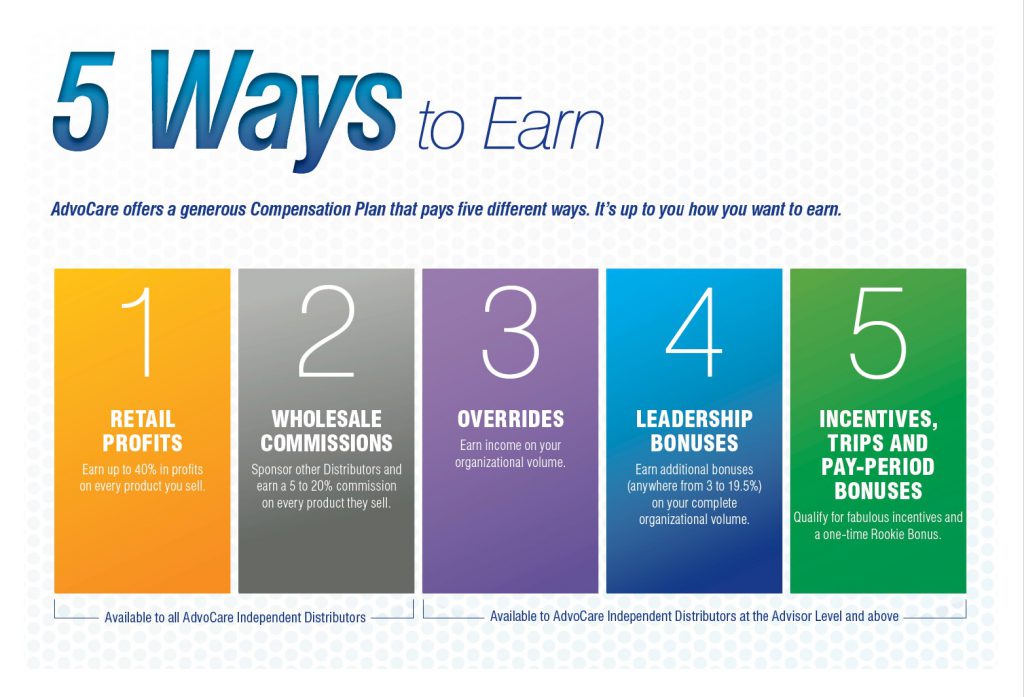
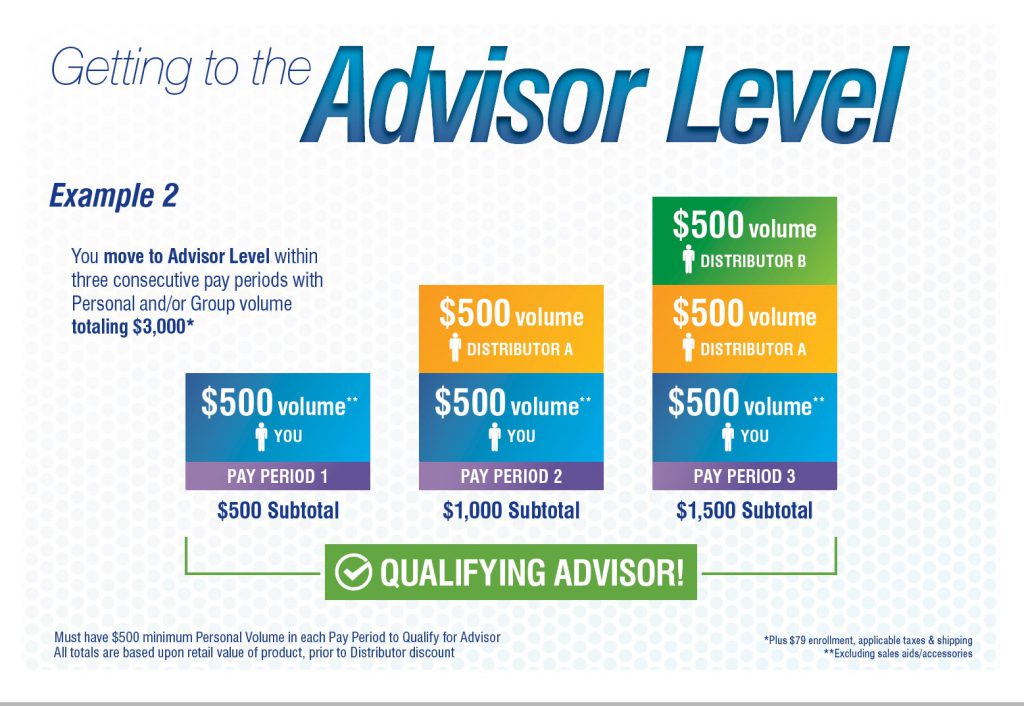
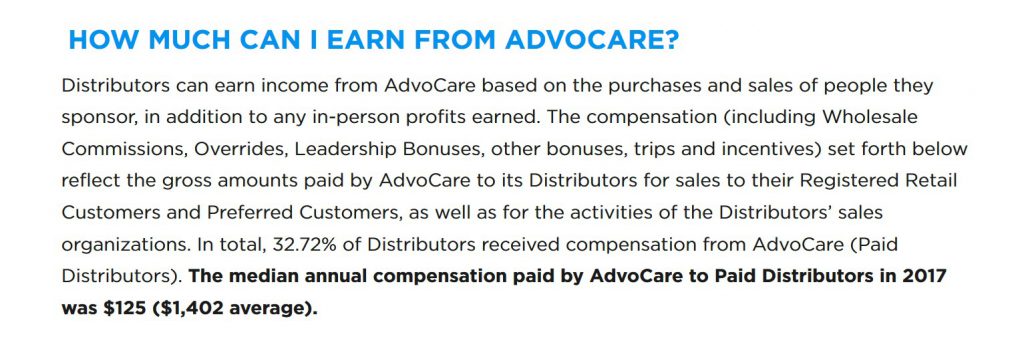
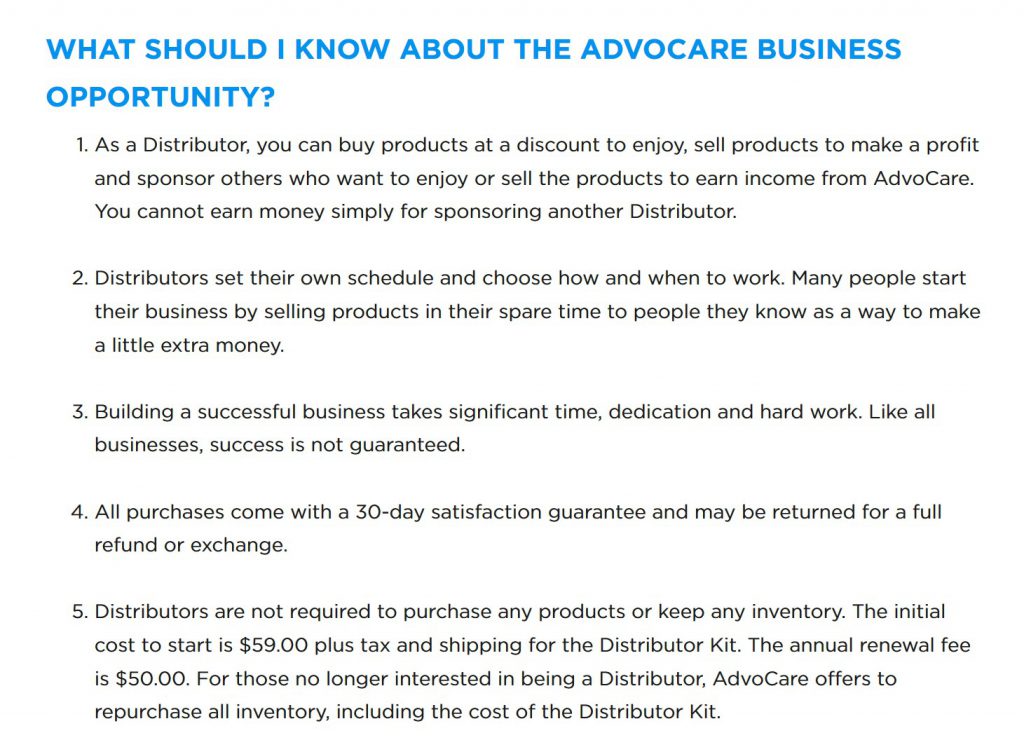
AdvoCare’s CEO Patrick Wright said: “Over the years, we have made many changes to the AdvoCare policies as the regulatory environment has shifted. Based on recent discussions, it became clear that this change is the only viable option.”
The company will now be single level, with compensation paid only on sales of products. Distributors and “preferred customers” buy products at a discount of 20% to 40% off suggested retail pricing. I have no idea whether they’re actually able to sell the products at suggested retail prices. I do know that AdvoCare likely won’t be around long. It’s no secret that MLM is all about recruiting and selling inventory packages to the recruits (frontloading). There isn’t nearly as much money in retailing products to actual customers because the sales are so low.
Does this mean that the FTC is taking abuse by MLMs more seriously? Possibly. But it’s been a very slow go. The high-profile case of Herbalife ended with what amounted to a slap on the wrist for the company.
What does this change by AdvocCare teach us about MLM?
- In MLM, you own nothing. You don’t even own the right to keep doing business the way the “business” was sold to you. If you built a team and you have recurring income from commissions on your downline’s activity, that’s over.
- There is a risk that the FTC will be cracking down on more MLMs and they will be forced (coerced?) into changing their business models.
- If you think “your” MLM is different from AdvoCare, you’re wrong. They all use the same barely legal techniques to appear that they’re legitimate business opportunities, and not pyramid schemes.





 Visit the
Visit the
And the other MLMs are moving in like hyenas onto a lion’s kill.
The panic has set in for people making money off their “downlines”
https://www.reddit.com/r/antiMLM/comments/bpxsng/advocare_going_retail_the_panic_has_set_in_for/
https://i.redd.it/lkb2ulp7nuy21.jpg
And some of them are nto happy about being seen as potential downline:
https://www.reddit.com/r/antiMLM/comments/bq02zo/ex_advocare_hun_upset_about_the_influx_of_other/
It’s posts like these on Reddit that make me wonder how the huns can have so little insight to their own actions.
I hope people read their contracts. If they leave AdvoCare, they can’t solicit their downlines for 12 months.
Following the cancellation or termination of a Distributor’s Contract, whether voluntary or involuntary and regardless of the reason for cancellation or termination, a former Distributor may not recruit any AdvoCare Distributor for any Competing Activities for a period of twelve (12) calendar months thereafter.
What if the down line reaches out ?
Doesn’t matter. You cannot recruit them (i.e. sign them up) for a different company. I will be curious to see how heavily they enforce this.
Average compensation was $125
That’s not quite right.
The median was $125. That means half of people received $124.99 or less, and the other half received $125.01 or more. I’m actually surprised they included this number.
The average was $1,402, which is a LOT higher than the median. That means most people receive a little bit and a few receive an enormous amount.
How do you get a $125 median with a $1,402 average? Well, if 10,000 people participate, and 2% are Advisor level (like a MK Director), then 98% (9,800) get $125 each, but the top 2% (200) get $63,975 each.
Since this is an MLM we know it isn’t true that everyone in the top 2% gets the big bucks. It goes more like this: 98% of the 200 Advisors (196) get $10,000 each, but the top 2% of the Advisors (4) get $2,708,750 each.
That’s how big those dollar numbers have to be when you have a $1,402 average with a mere $125 median.
It makes me sick. A LOT of people were cheated.
“The average was $1,402, which is a LOT higher than the median.”
It’s odd how often this number comes up as the average for MLMs. I’ve done the math on several and the average sales (or orders) per participant is invariably $1000-1500.
The numbers I’m talking about are the commissions, not the personal sales. Yes, the typical personal sales are about $1,000 to $1,500. Sales profits after expenses are almost nothing.
MLMs all claim that the real money comes from recruiting. That’s why you become a Director; that piddly $1,000 you received in sales after expenses is enough to make you cry. All that work… So you start recruiting instead. After all, leveraging your efforts pays off big, or so you were told.
The ugly truth is that for more than 98% of the people who recruit and receive a commission, they still get paid almost nothing. Worse, they wipe out their customer base to get that commission, but only enrich the company.
Even the Directors who manage to get $10,000 in commission find that eaten up fast with mandatory “pay to play” purchases and expenses.
Mary Kay. MLMs. It’s a story told over and over again until we forget that it’s a lie. (Thank you Petyr Baelish.)
Look at Mary Kay. You can not get a cadalic unless you have a team. Even if you bought the amount needed by yourself and met the financial criteria you couldn’t get one.
Note that it says “paid distributors” and “32.72% of distributors received compensation from Advocare.”
Most were not paid and probably lost a good deal of money. Advocare decided to leave that part out.
You are 100% correct. Here is the full earnings disclosure: http://www.sequenceinc.com/fraudfiles/wp-content/uploads/2018/07/advocare2017.pdf
241,019 distributors received $0.
“They invite people in tight financial circumstances looking for some extra income. They tell their recruits that, with enough hard work, they can help themselves financially by growing their Mary Kay business. They tell unsuccessful consultants (and the overwhelming majority are unsuccessful) that their lack of success is due to their not working hard enough at growing their Mary Kay business (i.e. recruiting consultants.) Mary Kay thus uses its victims’ good nature to encourage them to join and stay in the opportunity.”
So I played a form of Mad Libs changing a few names. Unfortunately, it’s not so funny. Here is the real quote:
(According to the 2015 Advocare lawsuit)
“They prey on people in tight financial circumstances looking for some extra income. They tell their victims that, with enough hard work, they can help themselves financially by growing their AdvoCare business. They tell unsuccessful Distributors (and the overwhelming majority are unsuccessful) that their lack of success is due to their not working hard enough at growing their AdvoCare business (i.e. recruiting Distributors.) AdvoCare thus uses its victims’ good nature to encourage them to join and stay in the scheme.”
MLMing is an act or method of how you do things. It doesn’t change with the name of the company. It is not “an” MLM. It is any company that uses MLMing. A method with inherent flaws where only founders and top liars can prosper.
I did the same thing with the Herbalife/FTC article and put Mary Kay in there instead. Word for word it is the same thing that is happening.